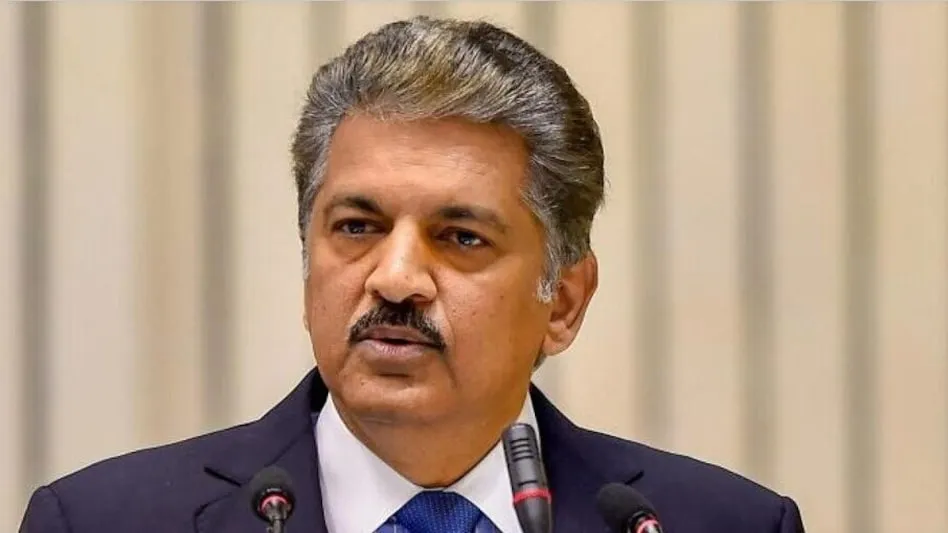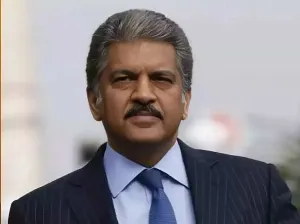Anand Mahindra Highlights Skilled Worker Shortage Amid AI Concerns

The shortage of skilled workers in the United States has become a pressing issue, as highlighted by Ford Motor Company CEO Jim Farley and business leader Anand Mahindra. In a recent interview with Axios, Farley emphasised the necessity of addressing this crisis to maintain the country’s leadership in artificial intelligence (AI) and advanced manufacturing. He stated that without a robust workforce in key blue-collar industries, the US risks falling behind in the competitive global landscape.
Anand Mahindra, the Chairman of the Mahindra Group, echoed these sentiments in a post on the social media platform X (formerly Twitter). He pointed out what he termed the 'scarcity of skilled trades' as a significant crisis overshadowing fears of AI displacing white-collar jobs. Mahindra noted that Ford currently has 5,000 unfilled mechanic positions, many offering salaries of approximately $120,000 per year, yet there are no applicants for these roles.
In his post, Mahindra questioned whether society might soon need to reassess its perception of desirable careers. He stated, "So the real question is: Are we about to witness a reset in what society considers a dream career?" He further added that if the trend of unfilled skilled positions continues, those capable of maintaining and operating essential services will emerge as the major beneficiaries in the AI-driven era.
The underlying issue, as Mahindra describes, has been the societal inclination over recent decades to prioritise academic degrees and office jobs, while skilled trades have been undervalued. Despite the increasing automation and digitisation of many sectors, jobs requiring practical skills, judgement, and hands-on experience remain irreplaceable by AI technology.
Farley has called for a cultural shift to elevate the prestige of blue-collar work. He is advocating for policy changes that include faster permitting processes, regulatory reforms, and enhanced funding for vocational training and apprenticeships. Furthermore, he has highlighted the potential role of technological innovations, such as robotics and augmented reality, in improving productivity in traditional trades.
He remarked, "If we are successful -- when we are successful -- we’ll take on bigger, higher-class problems. Right now, the problems we’re trying to solve are pretty practical. I need 6,000 technicians in my dealerships on Monday morning." This statement underscores the immediate urgency of the skilled labour shortage, not just for Ford but for the wider economy.
The problem of unfilled roles extends beyond the automotive industry, with over a million essential positions in plumbing, electrical work, trucking, and manufacturing across the United States remaining vacant. According to a study by Deloitte and The Manufacturing Institute, an estimated 2.1 million manufacturing jobs could be unfilled by 2030, potentially costing the economy around $1 trillion.
This situation has drawn comments from various industry leaders, including Elon Musk, CEO of Tesla and SpaceX, who recently stated, "America has a major shortage of people who can do challenging physical work or who even wish to train to do so." His observations reflect a growing awareness of the urgent need for a skilled workforce capable of meeting the demands of modern industries.
Anand Mahindra's perspective draws on historical context, invoking Karl Marx's ideas regarding the empowerment of workers. He remarked, "Marx imagined workers rising through struggle. He never imagined they’d rise because they became too skilled, too scarce, and too essential to replace." Mahindra posits that this transformation in the labour market could signify a new kind of revolution, one that arises not through conflict but through the recognition of value in skilled trades.
As discussions surrounding AI and automation continue to dominate headlines, the reality of a labour crisis in skilled sectors poses immediate challenges that require attention and action from policymakers, educators, and industry leaders alike.

Bangladesh Seeks Extradition of Sheikh Hasina Following Death Sentence

Tom Cruise Receives Honorary Oscar at Governors Awards Ceremony

Anand Mahindra Highlights Skilled Worker Shortage in the US

Supreme Court Raises Concerns Over Liquor in Tetra Packs





